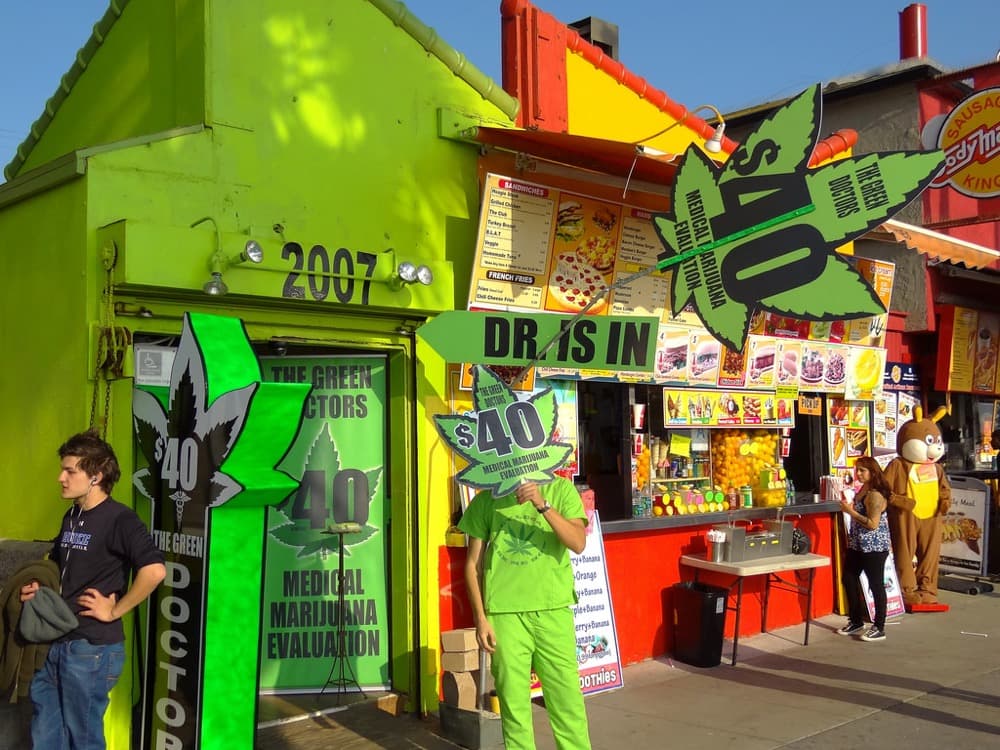Two of the best-known figures in Colorado's recent political history have taken an unequivocal stance against marijuana legalization in Arizona.
Meanwhile, three Colorado legislators have called for the sponsoring group, Arizonans for Responsible Drug Policy, to end the ads. The legislators describe them as misleading and inaccurate.
“Don’t repeat our terrible mistake," Wellington Webb, Denver's former mayor of 12 years, says in the new ad. (Arizona is one of five states considering legalization of marijuana this Election Day.)
Let's take this thing point by point. I'll list the quotes and who said them, and then provide some context.
Owens: "Colorado now leads the nation in the teen use of marijuana."
There are conflicting reports on this. The "leads the nation" stat comes from the federal government's National Survey on Drug Use, which in 2013-14 reported that Colorado really did have the highest percentage of recent teen marijuana use -- about 12.6 percent, compared to 11.2 percent in 2012-13. A state survey finds that fewer teens see marijuana as risky these days, and found statistically significant increases of several percentage points reported by high-school juniors and seniors from 2013 to 2015.
Some caveats, though: There's a significant margin of error of a couple points on that federal survey, which means that a) Colorado teens might not actually be the heaviest users and b) there might not have been an increase. Also, that state report found that teen's overall recent use of marijuana had not changed significantly among high-school students.
Owens: "Marijuana edibles are marketed to children."
This one's up for interpretation. We've definitely seen some edibles that look a lot like candy, but the state is working to change that. New rules in Colorado will ban cutely shaped edibles, forbid most uses of the word "candy" and require new warnings. Still, this does point to some of the growing pains that legalization can bring.
Owens: "Marijuana-related traffic deaths have increased 62 percent."
This comes from the Rocky Mountain High Intensity Drug Trafficking Area, a collaborative effort of regional law agencies. It's kind of true, in that the drivers who died in these crashes tested positive for marijuana. However, there's no proof there of a "relationship" between marijuana and the crash, as people can test positive for marijuana days or weeks after consumption. That's like saying that nearly 100 percent of traffic deaths are clothing-related.
However, this analysis could point to a significant increase in adult usage.
Webb: "In one Colorado hospital, 50 percent of newborns tested had marijuana in their system."
True, but most newborns aren't tested for drugs. Chloe Aiello explored this issue and its health impacts in depth.
Webb: "We were promised new money for education. Instead that money’s going to marijuana regulation and the pot industry. Denver schools got nothing."
This depends on how you interpret the statement.
If he's talking about Colorado as a whole, it's false. Colorado schools get more money from pot than any other part of state government. Every year, the first $40 million of the special tax on weed goes to school construction. For the year ending in June 2016, that amounted to $40 million from the excise taxes on marijuana, according to Larson Silbaugh, a senior economist for the state.
Pot taxes also sent $2.3 million to address behavioral issues in school, $2 million for anti-bullying programs and $2 million for drop-out prevention last fiscal year, and the state anticipates $5.7 million for the state education fund in the year ahead. However, it's true that Denver hasn't received any of that state funding -- because, as KDVR reports, it's mostly going to build schools in rural districts.
Denver also gets about $1 per student from city taxes on marijuana for after-school and summer programs.
What about spending on regulation?
Also in Webb's defense, some tax money does go back toward regulation. By my count, about $11.5 million is going toward enforcement and regulation, such as pesticide control, the Marijuana Enforcement Division, hemp development and law-enforcement training.
The Colorado response:
Colorado State Sen. Pat Steadman and Reps. Jonathan Singer and Millie Hamner, all Democrats, on Monday sent a letter to Arizonans for Responsible Drug Policy, which opposes Proposition 205 in Arizona.
"They are saying these things that are really far afield from the truth," Steadman said in an interview with The Associated Press. "We've been building schools and repairing schools with the excess tax revenue that was dedicated to school construction. Those dollars are flowing."
Campaign manager Adam Deguire said the legislators have "been bought and paid for" by the marijuana industry and that they are pushing misleading information.
"The bottom line is that Colorado schools were promised more money for classrooms than they have actually received and that is why so many schools officials are now asking where all the pot money is that they were promised. Our ads clearly point out that Denver schools received no pot money which is also true, and uses real Colorado school officials who back up these facts," Deguire said in an email to the AP.
The Associated Press Contributed to this report.














